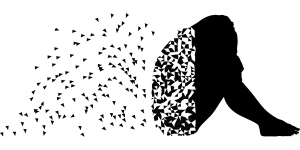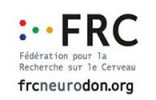Peripheral biomarkers of psychiatric disorders
Pierre-Eric LUTZ

Presentation
Psychiatric disorders emerge from interactions of socio-economic, cultural and biological factors. From a biological point-of-view, they also result from individual vulnerabilities, including genetic polymorphisms, that tightly interact with life experiences. These interactions primarily occur in the brain, where associated molecular adaptations trigger long-lasting functional changes resulting in behavioral, emotional and cognitive deficits.
While previous research has mostly focused on the brain, recent work has started to suggest that such disorders may affect other organs and tissues (eg the blood, microbiome, or immune system), implicating cross-talks among tissues that remain largely unknown. Because these peripheral tissues are easily accessible, they may be used to develop biomarkers to improve diagnosis, the evaluation of disease severity, or as predictors of treatment efficacy.
In this context, our current work focuses in particular on epigenetic mechanisms such as DNA methylation. Epigenetic mechanisms are known to mediate reversible adaptations in the organization and regulation of the expression of genes. As such, they can contribute to the understanding of how life events, including traumatic experiences or the consumption of drugs of abuse, may affect gene expression and brain function.
By collaborating with teams of psychiatrists, sociologists and addiction clinicians throughout France, we seek to explore this framework along 2 major directions:
 Biomarkers of mood disorders, suicidal behaviors and childhood maltreatment
Biomarkers of mood disorders, suicidal behaviors and childhood maltreatment
Mood disorders are chronic diseases that impose a heavy burden on affected individuals and their families. Epidemiological studies indicate that traumatic experiences and childhood maltreatment represent major risk factors for these disorders. In some cases, this can even lead to the emergence of suicidal ideation or behaviors. In this project, we characterize large collections of peripheral blood samples from individuals with mood disorders (major depression, bipolar disorder), for whom past histories of child abuse and suicidal behaviors have been carefully characterized. Our goal is to identify potential biomarkers of these conditions, and of associated risk factors.
 Biomarkers of opioid use disorder
Biomarkers of opioid use disorder
This project notably builds on the supervised injection sites that opened in France in 2016, in Strasbourg and Paris. The goal of these facilities is to provide a location where drug users have access to a safer environment for intraveinous injections, as well as to social, medical and psychiatric interventions. Recruitment at safe injection sites should allow us to target patients at highest psychosocial risk, who remained mostly out-of-reach of previous studies, and therefore to cover a wide spectrum of disease course and severity. Our goal is to characterize molecular biomarkers, in particular at epigenetic level, that may be detectable in blood. In the long term, such biomarkers may help identify patients that are most severily affected, and may benefit from more intensive intervention.

Alba Caparros-Roissard

Mohamad Yassine
- Raoul Belzeaux, El Chérif Ibrahim, Eduardo Gascon (Hôpitaux Universitaires de Marseille, Institut de Neurosciences de la Timone, Marseille, France)
- Andrée Delahaye-Duriez (Assistance Publique-Hôpitaux de Paris, Neurodiderot Inserm UMR 1141, Paris, France)
- Bruno Etain & Cynthia Marie-Claire (Université Paris Descartes, INSERM UMR 1144, Paris, France)
- Gustavo Turecki (McGill Group for Suicide Studies, Douglas Hospital Research Centre, McGill University, Montréal, Canada)
- Benoit Labonté (CERVO Institute, Laval University, Québec, Canada)
- Laurence Lalanne-Tongio (Hôpitaux universitaires de Strasbourg, France)
- Marie Jauffrret-Roustide (Cermes3, Paris, France)
- Benjamin Rolland (Service Universitaire d’Addictologie de Lyon, France)
- Emilie Olié & Philippe Courtet (Hôpitaux Universitaires de Montpellier)
- Next-generation sequencing (RNA-Seq, WGBS, RRBS, ChIP-Seq)
- Bioinformatics
- Multi-omic integrative analyses
- Agence Nationale pour la Recherche (ANR)
- Fondation pour la Recherche sur le Cerveau (FRC)
- Union Nationale des Familles et Amis de personnes Malades et/ou Handicapées Psychiques (UNAFAM)
- Fondation de France
- American Foundation for Suicide Prevention (AFSP)


















